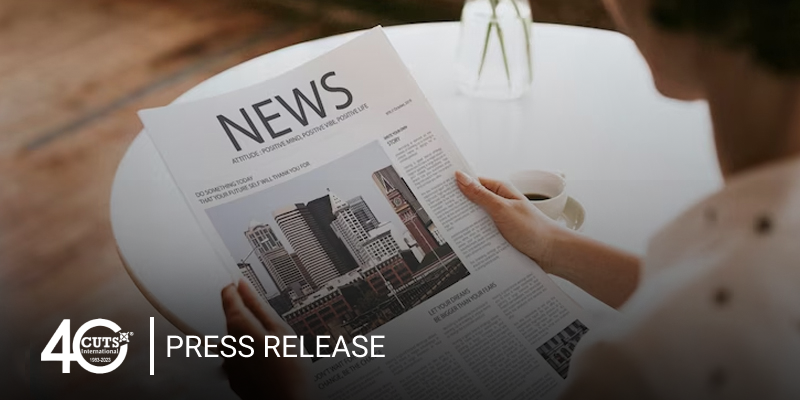“Today couldn’t be a better day to celebrate the World Competition Day”, said Philippe Brusick, Former Head of the Competition and Consumer Protection Policies Branch at UNCTAD, today in Geneva while speaking at a roundtable discussion organised by CUTS International in celebration of the World Competition Day.
“Today couldn’t be a better day to celebrate the World Competition Day”, said Philippe Brusick, Former Head of the Competition and Consumer Protection Policies Branch at UNCTAD, today in Geneva while speaking at a roundtable discussion organised by CUTS International in celebration of the World Competition Day.
“Indeed, on 5th of December 1980 the United Nations adopted the UN Set of Multilaterally Agreed Equitable Principles and Rules for the Control of Restrictive Business Practices which paved the way for enormous progress on consumer welfare through competition policy”, he added. This year’s theme being “Competition Issues in Public Procurement”, the event explored how integrating principles of fair competition in public procurement could help in more efficient utilisation of government revenues. Efficient procurement means to procure best possible goods and services at the lowest prices. Thus, vigorous competition amongst suppliers helps this objective. Conversely, when competition is curtailed, more than fair price is paid for lower quality and Government money is wasted. It is, therefore, important that the procurement process is not distorted by practices such as collusion, bid rigging, lack of competitive neutrality, abuse of dominance, etc. Such anti-competitive activities cause adverse economic implications such as loss of efficiency and diversion of money away from development programmes.
“The most obvious and well-known tool against cartels include competition law enforcement, reinforced by tools such as leniency measures for cartel breakers”, said Robert Anderson, Counsellor for Government Procurement and Competition Policy at the WTO Secretariat. Other powerful tools were also mentioned such as educating procurement officials on suspicious signs, inter-agency cooperation and trade liberalization.
“Expanding the pool of potential competitors through trade liberalization will enhance competition and result in less collusion and lower prices”, he added.
In fact, public procurement is an area where international trade rules, national competition policies and procurement officials have a strong complementarity of roles and interests. The WTO Government Procurement Agreement was itself seen as a competition enabler since it ensures non-discriminatory conditions for competition in certain types of procurements. While most of its 43 members are developed countries, it also includes developing countries. However, no African country is party to the agreement.
Since 2010, a policy-based think tank CUTS has been advocating for the celebration of the 5th of December as the World Competition Day. In 2012, UNCTAD also joined CUTS in the promotion of the World Competition Day which since then has swiftly gained popularity amongst Competition Authorities worldwide. Currently, 24 countries worldwide including the United Kingdom, Russia, Sweden, Austria, Afghanistan, Tanzania, Spain, Gambia, etc. have supported the call to have December 5 declared as World Competition Day by the UN General Assembly.
